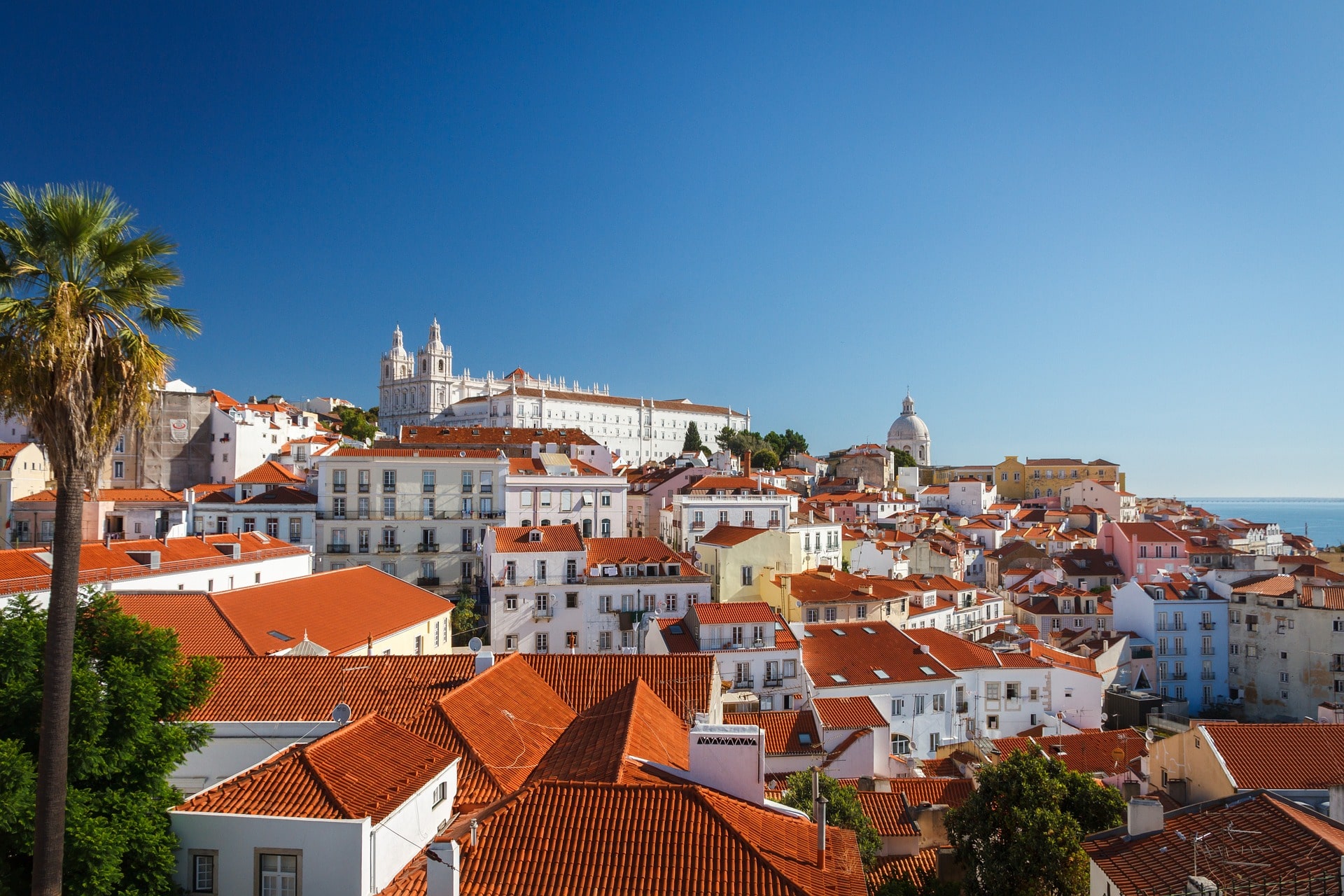
Why should you consider studying in Portugal?
Why Portugal?
Portugal offers a high quality of life, with a relatively low cost of living compared to other western European countries. The country has a diverse range of regions and cities, each with its own unique culture and lifestyle. There are several reasons why Portugal is an excellent destination for international students who are considering studying abroad:
- High-Quality Education: Portugal has a well-developed education system with a range of top-ranked universities offering excellent programs in various fields of study. Portugal’s universities are recognized for their quality of education and research, and many programs are taught in English. Portugal is also part of the European Higher Education Area, which means that Portuguese degrees are recognized across Europe and around the world.
- Affordable Education: Compared to other European countries, tuition fees in Portugal are relatively low. Additionally, the cost of living in Portugal is also lower than in many other European countries, making it an affordable destination for students.
- Opportunities for International Students: Portugal offers several scholarship programs for international students, including the Erasmus+ program. International students can also work part-time while studying to support themselves financially.
Other Reasons
- Cultural Diversity: Portugal is a welcoming and diverse country with a rich cultural heritage. International students will have the opportunity to experience Portuguese culture, learn the language, and meet people from all over the world.
- Location: Portugal is located in western Europe, making it an excellent gateway to the rest of Europe. It is well-connected to other European countries by air, rail, and road, making it easy for students to travel and explore other parts of Europe during their studies.
- Good Weather: Portugal has a mild Mediterranean climate, with warm summers and mild winters. Well known for its sunny weather, beautiful beaches, and stunning landscapes, which make it a great place to study and live.
- Safety: Portugal is considered one of the safest countries in Europe. Portuguese people are friendly and welcoming, and the crime rate is low compared to other European countries.
Overall, Portugal offers a combination of high-quality education, affordability, cultural diversity, good weather, safety, and opportunities for international students, making it an excellent destination for those looking to study abroad.
What are the best courses to study in Portugal?
Portugal offers a range of excellent courses in various fields of study. Some of the best courses to study in Portugal are:
- Business and Management: Portugal is home to some of the top business schools in Europe, such as Nova School of Business and Economics and Catolica Lisbon School of Business and Economics. These institutions offer courses in areas such as management, finance, marketing, and entrepreneurship.
- Engineering: Portugal has a strong reputation in the field of engineering, particularly in areas such as civil, mechanical, and electrical engineering. The University of Porto and the University of Lisbon are among the top institutions in this field.
- Medicine and Health Sciences: Portugal has a well-established healthcare system and offers courses in medicine, nursing, dentistry, and other health-related fields. The University of Coimbra and the University of Lisbon are among the top institutions for medicine and health sciences.
- Tourism and Hospitality: Portugal is a popular tourist destination and offers courses in tourism management, hotel management, and culinary arts. The Escola de Hotelaria e Turismo de Lisboa and the Escola de Turismo de Portugal are among the top institutions in this field.
- Arts and Humanities: Portugal has a rich cultural heritage and offers courses in areas such as history, literature, and fine arts. The University of Lisbon and the University of Coimbra are among the top institutions for arts and humanities.
- Information Technology: Portugal has a growing tech industry and offers courses in areas such as computer science, information systems, and data analytics. The University of Porto and the University of Lisbon are among the top institutions for information technology.
It’s important to do your own research and determine which institution and course align with your interests, goals, and career aspirations.
Top Universities in Portugal
According to the 2023 QS Top universities rankings. Here are some of the top 10 universities in Portugal:
- University of Lisbon (Universidade de Lisboa): The largest and oldest university in Portugal, offering a wide range of courses in various fields.
- The University of Porto (Universidade do Porto): One of the leading universities in Portugal, particularly in the fields of engineering, sciences, and medicine.
- University of Coimbra (Universidade de Coimbra): One of the oldest universities in Europe, known for its strong programs in law, medicine, and humanities.
- Nova University of Lisbon (Universidade Nova de Lisboa): A modern university with a focus on research and innovation, particularly in the fields of business and economics.
- Católica Lisbon School of Business and Economics (Universidade Católica Portuguesa): A leading business school in Europe, offering undergraduate, graduate, and executive education programs.
- ISCTE – University Institute of Lisbon (Instituto Universitário de Lisboa): A top public university known for its programs in social sciences, business, and information technology.
- University of Aveiro (Universidade de Aveiro): A young and dynamic university known for its strong programs in engineering and natural sciences.
- The University of Minho (Universidade do Minho): A leading university in the north of Portugal, particularly in the fields of engineering, sciences, and social sciences.
- University of Évora (Universidade de Évora): A historic university with a focus on the arts, humanities, and social sciences.
- University of Madeira (Universidade da Madeira): A small but growing university located on the island of Madeira, offering programs in various fields, including marine sciences and tourism.
How to study in Portugal?
If you are interested in studying in Portugal, here are some steps you can follow:
- Research universities and programs: The first step is to research the universities in Portugal and the programs they offer. Look for programs that match your interests and career goals.
- Check the admission requirements: Each university has its own admission requirements. Check if you meet the requirements and if you need to take any standardized tests like TOEFL or IELTS.
- Apply to universities: After choosing the universities and programs you are interested in. Submit your application online through their respective websites.
- Apply for a visa: If you are not an EU citizen, you will need to apply for a student visa. Contact the Portuguese embassy or consulate in your country to obtain the necessary information and documentation.
- Find accommodation: Once you are accepted into a program, you need to find accommodation. Most universities have student dormitories, but you can also rent a room or apartment.
- Get health insurance: It is mandatory to have health insurance in Portugal. You can either purchase it from a Portuguese provider or get coverage from your home country.
- Arrive in Portugal: Finally, arrange your travel to Portugal and attend the orientation program at your university.
Remember to plan ahead and leave enough time to complete all the necessary steps for studying in Portugal. Good luck!
Essential Requirements
The essential requirements to study in Portugal will depend on the level of education you wish to pursue and your country of origin. Here are some general requirements:
- Academic requirements: You need to have completed the equivalent of Portuguese secondary education or have a bachelor’s degree to pursue a master’s or doctoral degree.
- Language proficiency: Most universities in Portugal teach in Portuguese. If Portuguese is not your first language. You will need to demonstrate proficiency in the language through exams such as the CELPE-Bras or other Portuguese proficiency tests. Some universities also offer programs taught in English, and in that case. You will need to demonstrate proficiency in English through exams such as TOEFL or IELTS.
- Admission requirements: Each university in Portugal has its own admission requirements. Check the university’s website for specific information on the program you are interested in.
- Student visa: If you are a non-EU citizen, you will need a student visa to study in Portugal. You can obtain a visa from the Portuguese embassy or consulate in your home country.
- Health insurance: It is mandatory to have health insurance to study in Portugal. You can either purchase it from a Portuguese provider or get coverage from your home country.
- Financial requirements: You need to show proof of financial support for your studies, including tuition fees, accommodation, and living expenses.
Remember to check the specific requirements for the university and program you wish to apply to before submitting your application.
The estimated cost of fulfilling your study abroad dream
The cost of studying in Portugal will vary depending on the university, program, level of education, and lifestyle. Here are some estimated costs:
- Tuition fees: Tuition fees in Portugal are generally lower compared to other European countries. For example, the tuition fees for a bachelor’s degree range from 950 to 1,500 euros per year for EU students and from 3,000 to 7,000 euros per year for non-EU students. For master’s and doctoral degrees, tuition fees range from 1,500 to 3,000 euros per year for EU students and from 3,500 to 8,000 euros per year for non-EU students.
- Accommodation: The cost of accommodation will depend on whether you choose to live in a student dormitory or rent a room or apartment. On average, a student dormitory can cost around 150-400 euros per month. While renting a room or apartment can cost around 200-700 euros per month.
- Living expenses: The cost of living in Portugal is relatively affordable compared to other European countries. On average, you will need around 600-900 euros per month to cover expenses such as food, transportation, and leisure activities.
- Health insurance: It is mandatory to have health insurance in Portugal. You can either purchase it from a Portuguese provider or get coverage from your home country.
- Other expenses: Other expenses to consider include textbooks, materials, and travel costs.
Remember that these are estimated costs, and the actual cost may vary depending on your lifestyle and spending habits.
Academic Scholarships and Grants
There are several academic scholarships and grants available to study in Portugal. Here are some options:
- Portuguese Government Scholarships: The Portuguese government offers scholarships for international students through the Camões Institute. These scholarships cover tuition fees, accommodation, and a monthly allowance. The application process takes place annually, and the deadline is usually in March.
- Erasmus+ Programme: The Erasmus+ program provides grants for EU students who want to study abroad in another EU country, including Portugal. These grants cover tuition fees, travel costs, and a monthly allowance. The application process takes place through your home university.
- Santander Universities: Santander Universities provides scholarships and grants to students and researchers in several universities in Portugal. The scholarships cover tuition fees and a monthly allowance. The application process takes place annually.
- Fulbright Program: The Fulbright Program offers scholarships for US citizens who want to study or conduct research in Portugal. These scholarships cover tuition fees, travel costs, and a monthly allowance. The application process takes place annually, and the deadline is usually in October.
- University-specific scholarships: Many universities in Portugal offer their own scholarships and grants for international students. Check the university’s website for specific information.
Remember to check the eligibility criteria and application deadlines for each scholarship and grant before applying.
Step-by-step process to get your Student Visa
Here is a step-by-step process to obtain a student visa for Portugal:
- Find out the requirements: The first step is to check the visa requirements for your country of origin on the Portuguese embassy or consulate website. The requirements may vary depending on your country of origin. So make sure to check the specific requirements for your situation.
- Obtain a letter of acceptance: Choose a program and apply to a recognized educational institution. Once you are accepted into the program, you will receive a letter of acceptance from the institution. Keep this letter safe as you will need to provide it to the embassy or consulate when you apply for the visa.
- Gather required documents: Gather all the required documents for the visa application. Which may include your passport, letter of acceptance, health insurance certificate, proof of financial support, and criminal record certificate.
- Schedule an appointment: Schedule an appointment with the Portuguese embassy or consulate in your country of origin. You can usually do this online or by phone.
- Attend the appointment: Attend the appointment at the embassy or consulate and submit your application and required documents. You may also be required to pay a fee.
- Wait for processing: Wait for your visa application to be processed. This can take several weeks, so make sure to apply well in advance of your departure date.
- Collect your visa: If your application is approved, you will receive your student visa, usually in the form of a sticker in your passport. Make sure to check the visa information to ensure it is correct.
Remember that the specific requirements and process may vary depending on your country of origin, so make sure to check the embassy or consulate website for detailed information.
What are after-study opportunities in Portugal?
After completing your studies in Portugal, there are several opportunities available to international students. Portugal has become an increasingly popular destination for both work and settling in recent years, due to its relatively low cost of living, pleasant climate, and vibrant culture. Here are some options:
- Look for employment: International students can stay in Portugal for up to one year after graduation to look for employment. If you find a job, you can apply for a work permit to stay longer. Portugal has a shortage of skilled workers in some industries, such as healthcare, technology, engineering finance, and marketing, so there may be job opportunities available.
- Start a business: Portugal has a startup-friendly environment with Lisbon and Porto being popular hubs for entrepreneurs and innovators. There are several programs and initiatives aimed at helping entrepreneurs start and grow their businesses. The government also offers several tax incentives for startups and investors.
- Volunteer or intern: There are several opportunities to gain work experience through volunteering or internships in Portugal. These opportunities can be a great way to gain valuable skills and network with professionals in your field.
Other Options
- Further education: If you want to continue your education, Portugal has several options for postgraduate studies. You can apply to a master’s or doctoral program at a Portuguese university or consider studying at one of the many international institutions with campuses in Portugal.
- Return to your home country: You can also return to your home country after completing your studies in Portugal. The skills and knowledge you gained during your time in Portugal can be valuable in your home country, and you can use them to find employment or start your own business.
Remember that the opportunities available to you after graduation may depend on your field of study, language proficiency, and personal preferences. It is important to research and plan ahead to make the most of your post-study opportunities in Portugal.
Hope you found this article helpful, if you have any suggestions or queries regarding this article, then feel free to comment on the post, and we will get back to your query ASAP. Thank you and Best of Luck😊.



